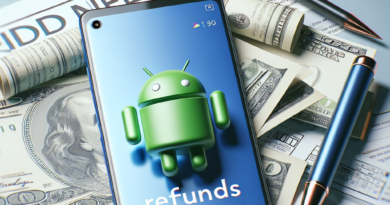Apple avoids EU fine on competition. What will the tech giant do and how does it impact consumers?
EU Antitrust Authorities Accept Apple’s Commitments on Payment Technology
The EU antitrust authorities have accepted Apple’s commitments to allow competitors access to its tap and go payment technology, thus ending a four-year investigation.
Apple’s decision to close the inquiry represents a crucial and rare step for the company, which had been at odds with the EU’s competition watchdog scrutinizing its business practices.
Currently, Apple is facing three investigations under the Digital Markets Act (DMA).
The EU formally initiated an antitrust probe into Apple Pay in 2020.
The investigation looked into the terms and conditions set by the tech giant for integrating Apple Pay into apps and websites, as well as concerns regarding tap and go technology.
In 2022, the European Commission found that Apple Pay could limit competition as it was the only option for iPhone users.
In January, the company offered to settle the case, thus avoiding a fine and an infringement decision.
Apple’s Competition Commitments in the EU
“Apple has committed to allowing rivals access to the ‘tap and go’ technology of iPhones,” stated EU Competition Chief Margrethe Vestager.
The decision will prevent Apple “from excluding other mobile wallets from the iPhone ecosystem.”
Under the agreement, consumers in Europe will be able to use alternative digital wallets to pay for goods and services.
The commitments will be binding for 10 years, and Apple faces a fine of up to 10% of its global annual turnover if it breaches the agreement.
Apple’s digital wallet allows customers to store virtual debit and credit cards on iPhones, as well as ticket reservations.
Its offering will now enable third-party developers to access Apple’s payment technology to help them create alternative mobile wallets, the Commission stated on Thursday.
Since its debut a decade ago, Apple Pay has grown to become the dominant and widely used digital wallet in the market.
Throughout Europe, consumers now turn to the app to quickly and conveniently pay for anything from public transport to groceries to restaurant bills.
This new commitment could potentially trigger a radical shift in the payment sector, which has long awaited the opportunity to use Apple’s NFC technology in their digital wallets.
With the newfound access, players like PayPal Holdings Inc., Alphabet Inc.’s Google Pay, or Samsung Electronics Co.’s Samsung Pay could potentially compete better and encourage more European customers to use their apps instead of Apple’s when paying in stores.
The closure of the investigation marks a brief truce between the EU and Apple, which have long disagreed on how the Cupertino-based company operates in competition, effectively breaching Brussels’ regulatory line.



